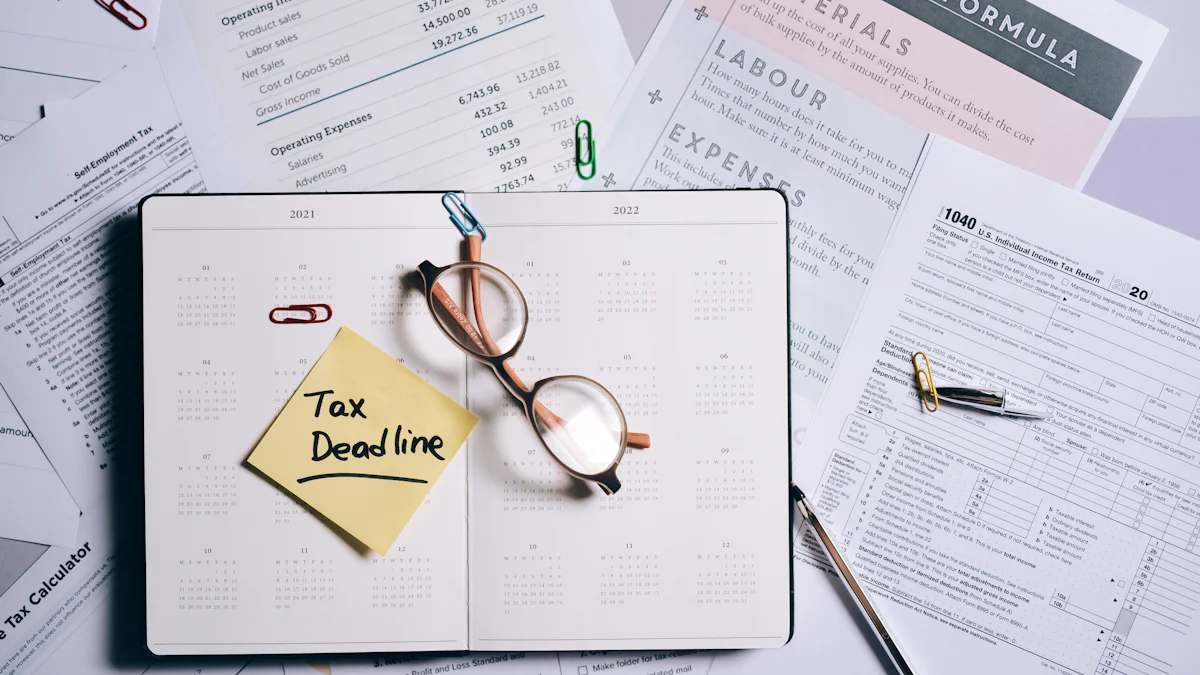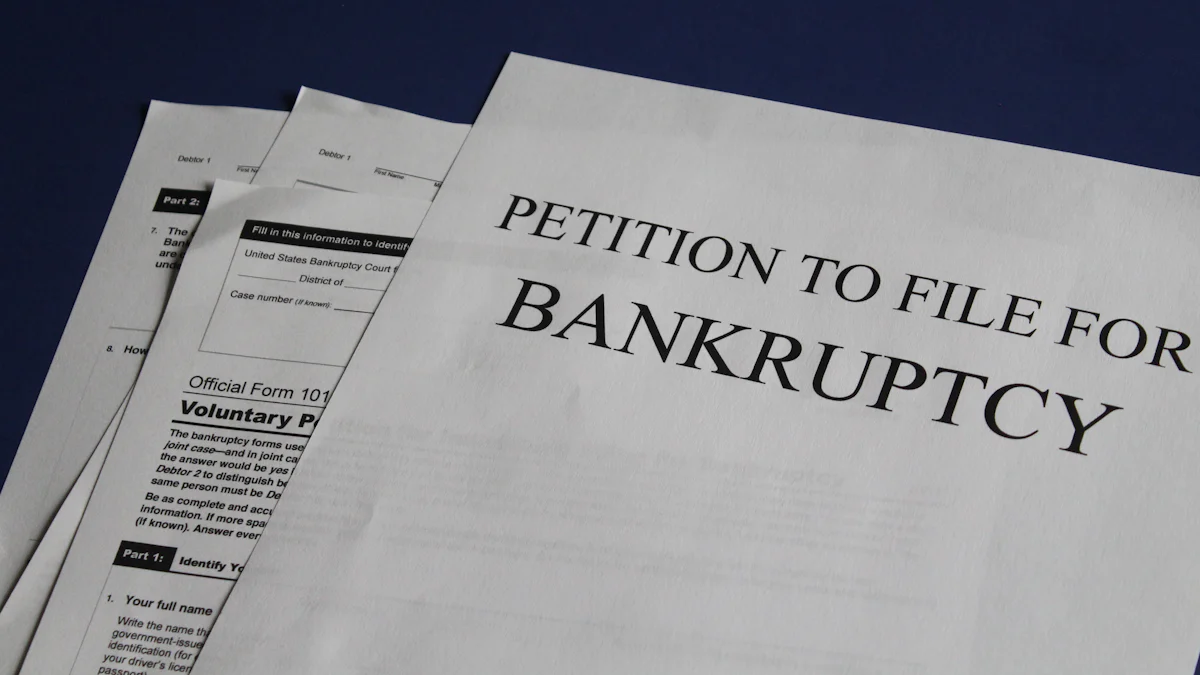Consequences of Ignoring Rental Income Tax

Rental income tax is a crucial aspect of property ownership. As a landlord, you must comply with tax regulations to avoid severe repercussions. Ignoring Rental Income Tax can lead to significant financial penalties. HMRC has identified thousands of landlords who failed to disclose their rental income, recovering millions in undeclared taxes. You risk fines up to 100% of the tax due, or even 200% if overseas income is involved. Compliance not only safeguards your finances but also maintains your reputation as a responsible property owner.
Understanding Rental Income Tax
Definition of Rental Income
What constitutes rental income?
Rental income includes any payment you receive for the use or occupation of property. This encompasses not only the monthly rent but also any additional fees or charges you might collect from tenants. For instance, if you charge for utilities, maintenance, or parking, these payments also form part of your rental income. It's crucial to recognise all these components to ensure accurate tax reporting.
Types of properties subject to rental income tax
Various types of properties fall under the purview of rental income tax. These include residential properties like houses and flats, as well as commercial properties such as office spaces and retail units. Even holiday homes and short-term rentals, like those listed on platforms such as Airbnb, are subject to rental income tax. Understanding which properties are taxable helps you comply with tax regulations and avoid potential penalties.
Legal Obligations
Tax declaration requirements
As a landlord, you must declare your rental income to the tax authorities. This involves reporting the total income received from your rental properties, minus any allowable expenses. These expenses can include repairs, maintenance, and property management fees. By accurately declaring your rental income, you ensure compliance with tax laws and minimise your tax liabilities.
Deadlines for filing rental income tax
Meeting deadlines for filing rental income tax is essential to avoid penalties. In the UK, you typically need to submit your Self Assessment tax return by 31 January following the end of the tax year. Missing this deadline can result in fines and interest charges. Keeping track of these dates and preparing your tax return in advance can save you from unnecessary stress and financial repercussions.
Consequences of Ignoring Rental Income Tax

Ignoring Rental Income Tax can lead to severe consequences for landlords. Understanding these repercussions is crucial for any property owner. By failing to declare your rental income, you expose yourself to both financial and legal challenges.
Financial Penalties
Fines and interest charges
When you ignore the obligation to declare your rental income, you risk incurring significant fines. HMRC can impose penalties up to 100% of the unpaid tax. In cases involving income from abroad, this can escalate to 200%. These fines represent a substantial financial burden. Additionally, interest charges accumulate on the unpaid tax amount, further increasing your liabilities. The longer you delay declaring rental income, the more these charges grow, compounding your financial difficulties.
Impact on future tax assessments
Ignoring Rental Income Tax affects your future tax assessments. HMRC may scrutinise your tax returns more closely, leading to increased assessments. This heightened scrutiny can result in higher tax liabilities in subsequent years. As a property owner, maintaining accurate and timely tax declarations is essential to avoid these complications. Ensuring compliance not only protects your current financial standing but also secures your future tax obligations.
Legal Repercussions
Potential for legal action
The legal consequences of ignoring rental income tax are severe. HMRC has the authority to pursue legal action against landlords who fail to declare their income. This can involve lengthy investigations and legal proceedings. The stress and time involved in such processes can be overwhelming. As a property owner, you must understand the importance of declaring rental income to avoid these legal challenges.
Criminal charges and implications
In extreme cases, ignoring rental income tax can lead to criminal charges. Deliberate evasion of tax obligations may result in prosecution. The implications of a criminal record are far-reaching, affecting your reputation and future business opportunities. For landlords, maintaining a clean legal record is vital. Declaring rental income accurately and on time is the best way to safeguard against these severe consequences.
Ignoring Rental Income Tax is not a risk worth taking. The financial and legal repercussions can be devastating. As a responsible property owner, you must prioritise compliance with tax regulations. By doing so, you protect your financial interests and maintain your standing as a reputable landlord.
HMRC and Undeclared Rental Income
How HMRC Uncover Undeclared Rental Income
Methods used by HMRC
When you fail to declare your rental income, HMRC employs various methods to uncover undeclared rental income. They meticulously examine tax returns, scrutinise bank statements, and review property deed transfers. These methods help HMRC identify discrepancies in your financial records. Additionally, HMRC sends 'nudge letters' or emails to landlords, prompting them to review their tax affairs. By using these strategies, HMRC uncovers undeclared rental income effectively, ensuring compliance with tax regulations.
Implications for property owners
Ignoring Rental Income Tax can have serious implications for property owners. When HMRC uncovers undeclared rental income, you may face significant penalties. These penalties can reach up to 100% of the unpaid tax, and in some cases, even more. The financial burden can be substantial, amounting to thousands of Pounds in additional penalties. Moreover, HMRC can reclaim tax payments for up to 20 years if they suspect deliberate avoidance. This long-term liability can severely impact your financial stability. As a property owner, it's crucial to declare your rental income to HMRC to avoid these consequences.
Assessment Tax and Penalties
Understanding assessment tax
Assessment tax refers to the process by which HMRC evaluates your tax liabilities. When you fail to declare your rental income, HMRC conducts an assessment to determine the amount owed. This assessment includes not only the unpaid tax but also interest charges and penalties. Understanding assessment tax is vital for landlords. It helps you comprehend the financial implications of undeclared rental income and encourages you to declare your income accurately.
Penalties for undeclared rental income
The penalties for undeclared rental income are severe. HMRC imposes fines that can range from 10% to 200% of the unpaid tax, depending on the circumstances. These penalties serve as a deterrent for landlords who might consider ignoring rental income tax obligations. In addition to financial penalties, you may face legal action, which can further complicate your situation. Declaring undeclared rental income promptly can mitigate these penalties and help you maintain compliance with tax laws.
Ignoring Rental Income Tax is a risk that no property owner should take. The consequences, both financial and legal, can be devastating. By understanding how HMRC uncovers undeclared rental income and the associated penalties, you can take proactive steps to declare your income accurately. This not only protects your financial interests but also ensures your reputation as a responsible landlord.
Common Mistakes to Avoid
When managing rental properties, you must avoid common pitfalls that can lead to severe consequences. Ignoring Rental Income Tax obligations can result in significant penalties and legal issues. Understanding these mistakes helps you maintain compliance and protect your financial interests.
Underreporting Income
Underreporting income is a frequent error among landlords. You might misunderstand allowable deductions, leading to incorrect tax declarations. Allowable deductions include expenses like repairs and maintenance, but not personal costs. For example, a Malaysian landlord mistakenly claimed flights and hotel stays as deductions, thinking they were similar to those allowed for his Australian property. This misunderstanding led to substantial penalties and a stressful investigation by HMRC.
Failing to report all rental properties is another common mistake. You must declare income from every property you own, whether residential or commercial. A Singapore-based landlord failed to declare rental income from a property for five years, resulting in a hefty fine and additional costs. This oversight emphasises the importance of accurate reporting to avoid the consequences of HMRC contacting you.
Incorrect Record Keeping
Accurate documentation is crucial for declaring rental income correctly. Poor record management can lead to discrepancies in your tax returns. You should maintain detailed records of all income and expenses related to your properties. This includes receipts, invoices, and bank statements. Proper documentation supports your claims and ensures compliance with tax regulations.
The consequences of poor record management can be severe. HMRC may conduct an assessment tax if they suspect undeclared rental income. This process involves scrutinising your accounts and financial records, potentially leading to penalties. By keeping accurate records, you minimise the risk of errors and ensure a smooth tax filing process.
Ignoring Rental Income Tax is not worth the risk. By avoiding these common mistakes, you protect your financial interests and maintain your reputation as a responsible property owner. Understanding the importance of accurate reporting and record-keeping helps you comply with tax obligations and avoid the severe consequences of undeclared rental income.
Steps to Ensure Compliance
Navigating the complexities of rental income tax can be daunting. However, by taking proactive steps, you can ensure compliance and avoid the severe consequences of ignoring rental income tax. Here are some essential strategies to help you stay on the right track.
Declaring Rental Income Properly
Ensuring accurate reporting
Accurate reporting of your rental income is crucial. You must declare all income received from your properties, including rent and any additional fees. This comprehensive approach ensures that you meet your tax obligations and avoid penalties. Golding Accountancy highlights the importance of understanding allowable deductions, such as repairs and maintenance, to reduce your tax liabilities. By accurately reporting your income, you minimise the risk of HMRC scrutiny and potential fines.
Avoiding common pitfalls
Avoiding common pitfalls in declaring rental income is essential. Many landlords make mistakes by underreporting income or misunderstanding allowable deductions. To prevent these errors, maintain detailed records of all income and expenses related to your properties. This documentation supports your claims and ensures compliance with tax regulations. Benhams, experts in tax compliance for landlords, recommend seeking professional advice to avoid these pitfalls and ensure accurate reporting.
Seeking Professional Advice
Benefits of consulting a tax advisor
Consulting a tax advisor offers numerous benefits. These professionals provide expert guidance on declaring rental income accurately and maximising allowable deductions. Darnells Tax Accountants emphasise the importance of expert consulting to ensure all aspects of your rental income are correctly reported. By working with a tax advisor, you gain valuable insights into tax planning and compliance, reducing your risk of penalties and legal issues.
How to choose the right professional
Choosing the right professional is crucial for effective tax management. Look for advisors with experience in rental property taxation and a proven track record of helping landlords. Osome Tax Experts suggest that strategic planning and timely actions are key to minimising tax on rental income. When selecting a tax advisor, consider their expertise, reputation, and the range of services they offer. A knowledgeable advisor can guide you through the complexities of rental income tax and help you maintain compliance.
Ignoring rental income tax is not a risk worth taking. By ensuring accurate reporting and seeking professional advice, you protect your financial interests and maintain your reputation as a responsible property owner. These steps not only safeguard you from the consequences of undeclared rental income but also ensure a smooth and compliant tax journey.
Declaring rental income is crucial for maintaining compliance with tax regulations. Ignoring Rental Income Tax can lead to severe consequences, including hefty fines and legal action from HMRC. You must declare all rental income to avoid these repercussions. Seeking professional help ensures you accurately report your income and minimise tax liabilities. As you navigate the complexities of rental property management, remember that compliance safeguards your financial interests. Let this be the beginning of your success in the property rental industry. With these strategies, you are well-equipped to manage your rental endeavours confidently.
See Also
Strategies for Managing Tax Implications When Selling Rental Property
The Right Moment to Sell Your Rental Property
Optimizing Revenue: Effective Strategies for Selling Rental Property
Guiding Through HMRC Self Assessment for Property Owners
Determining the Optimal Moment to Sell Rental Property: 2024 Insights

